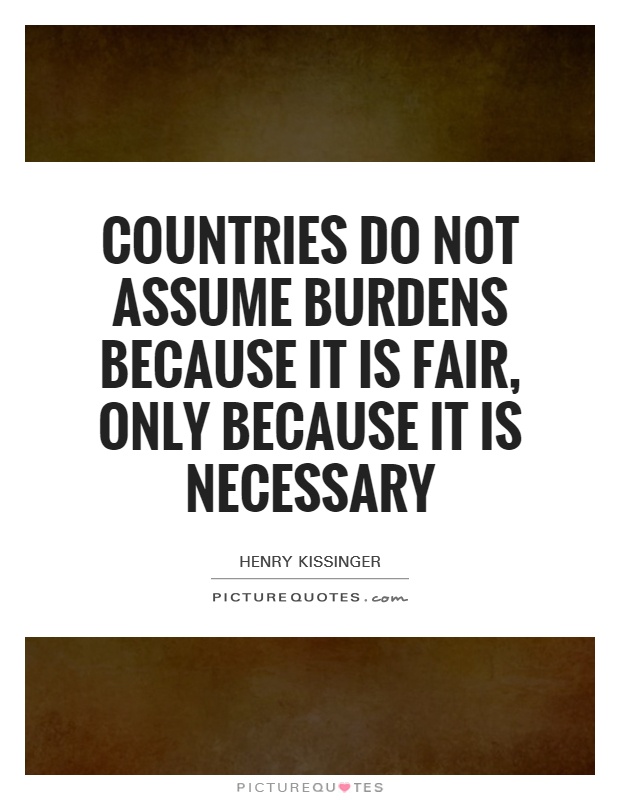Countries do not assume burdens because it is fair, only because it is necessary

Countries do not assume burdens because it is fair, only because it is necessary
Henry Kissinger, a renowned diplomat and political scientist, is often associated with the quote, "Countries do not assume burdens because it is fair, only because it is necessary." This statement encapsulates Kissinger's pragmatic approach to international relations and his belief that nations act in their own self-interest rather than out of a sense of fairness or altruism.Throughout his career, Kissinger served as National Security Advisor and Secretary of State under Presidents Richard Nixon and Gerald Ford. He played a key role in shaping U.S. foreign policy during the Cold War era, particularly in relation to the Soviet Union and China. Kissinger's realpolitik approach emphasized the importance of power dynamics and strategic interests in shaping international relations.
In the context of Kissinger's philosophy, the quote highlights the idea that countries are motivated by their own national interests when making decisions on the world stage. This can involve pursuing alliances, engaging in conflicts, or assuming burdens such as providing aid or military support. Nations are not driven by a sense of fairness or moral obligation, but rather by the practical necessity of protecting their own security and advancing their strategic goals.
Kissinger's approach to diplomacy was often criticized for its perceived cynicism and Machiavellian tactics. Critics argued that his focus on power politics and realpolitik undermined ethical considerations and human rights concerns. However, Kissinger defended his approach as a realistic and pragmatic way of navigating the complexities of international relations.












 Friendship Quotes
Friendship Quotes Love Quotes
Love Quotes Life Quotes
Life Quotes Funny Quotes
Funny Quotes Motivational Quotes
Motivational Quotes Inspirational Quotes
Inspirational Quotes